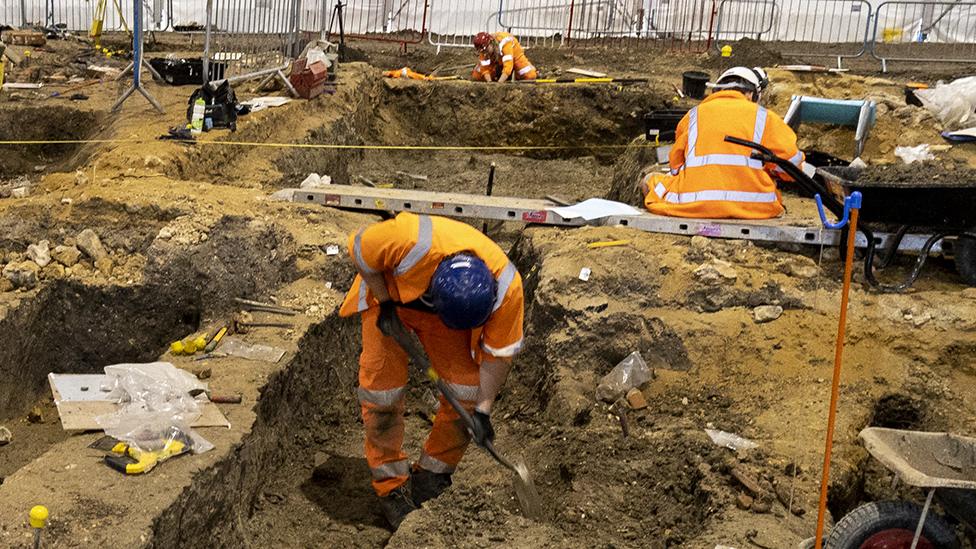HS2: Vast Roman settlement found by archaeologists
- Published
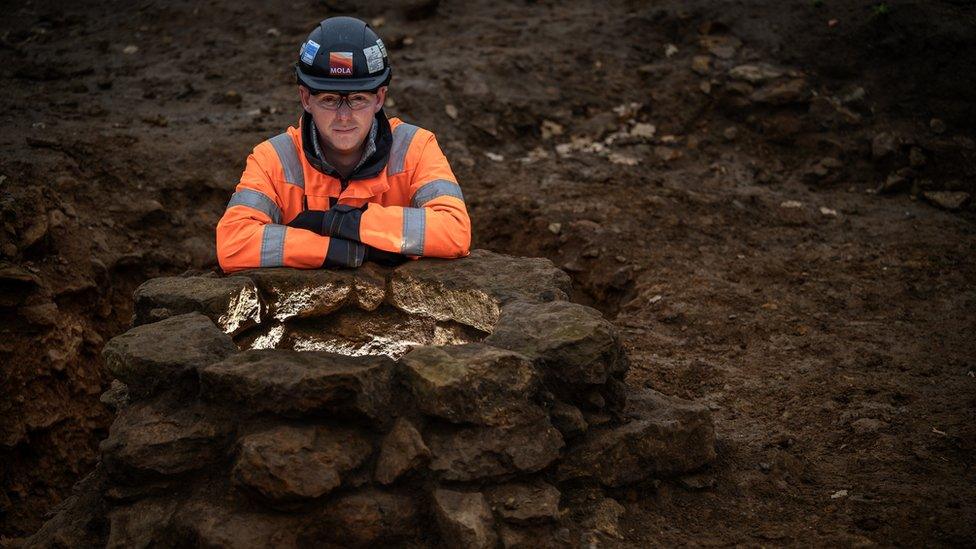
James West said this was one of the most impressive sites that had been discovered during HS2 excavations
Archaeologists working on the route of the HS2 high-speed railway have found a vast wealthy Roman trading settlement.
The discovery was made during excavations at the site in south Northamptonshire.
A team of about 80 archaeologists have been working on the site for a year and discovered numerous artefacts, including more than 300 Roman coins.
Site manager James West said it was "extraordinary and tells us so much about the people who lived here".
The site, known as Blackgrounds after the black soil found there, is near the villages of Edgcote and Chipping Warden.
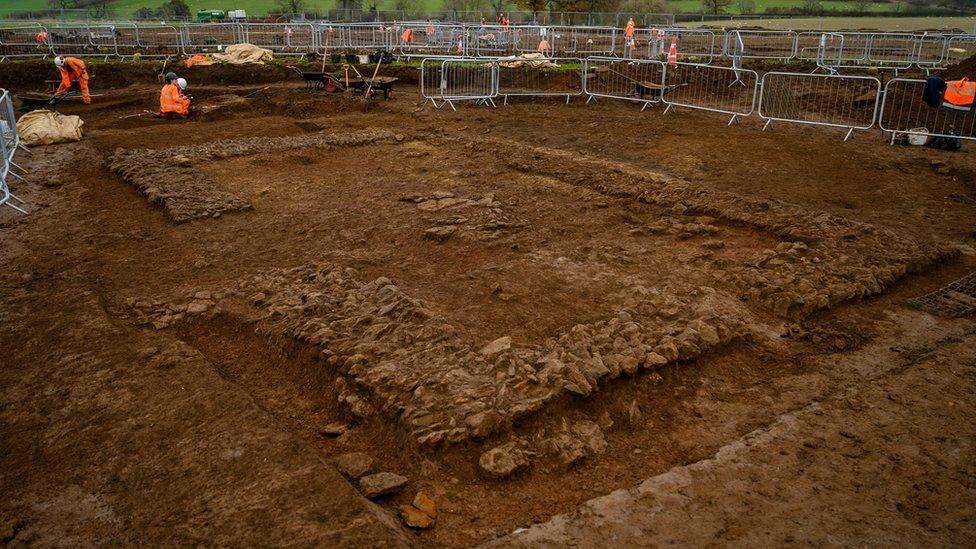
Walls of a domestic building were uncovered during the archaeological excavation in south Northamptonshire
Archaeologists said it was an Iron Age village, formed of more than 30 roundhouses, believed to have been established in about 400 BC, that developed into a wealthy Roman trading town.
Discoveries showed the settlement expanded over time, becoming more prosperous during the Roman period, with new stone buildings and roads being built.
The team uncovered a 10m (33ft) wide Roman road, described as "exceptional in its size", running through the site.
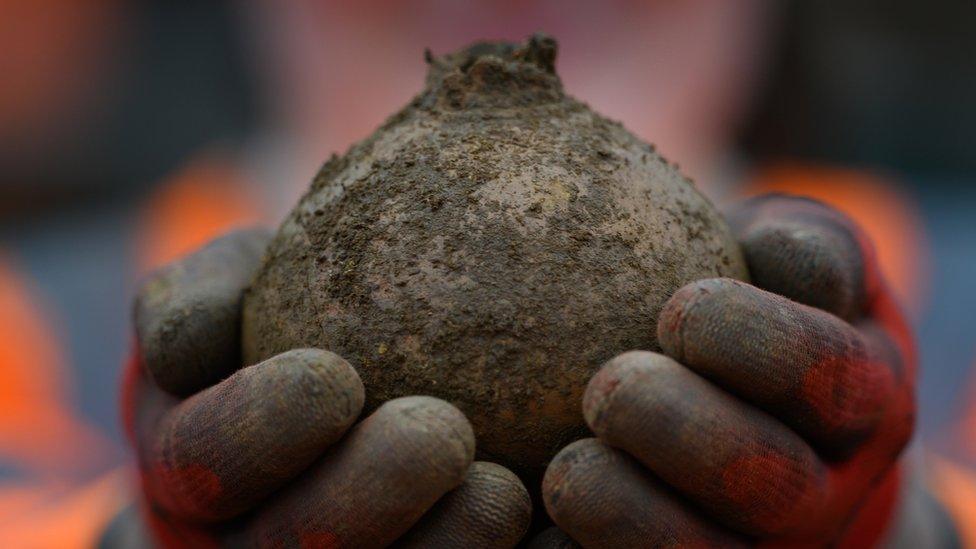
A Roman pot was among the artefacts found by archaeologists
HS2 archaeologists found evidence of workshops, kilns, several "beautifully preserved wells" and fiery red-coloured earth, which indicates activities such as bread-making and metal work occurred.
Alongside the coins found, glass vessels, highly decorative pottery, jewellery and evidence of make-up was uncovered.
Traces of the mineral galena - lead sulphide - a substance that was crushed and mixed with oil as make-up, was found on the site, archaeologists said.
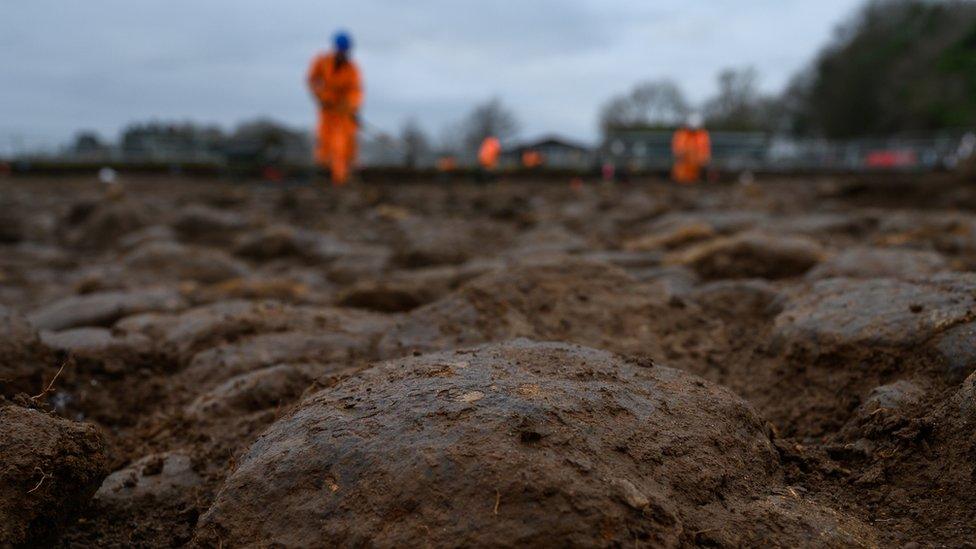
The Roman road found at the site was described as well-preserved and large
Mr West said it was one of the "most impressive sites" Museum of London Archaeology (MOLA) had discovered working on HS2.
He said the Blackgrounds area "spans multiple time periods" and had given the team several "high-quality finds".
"The site really does have the potential to transform our understanding of the Roman landscape in the region and beyond," he added.
The history of the site features in Digging for Britain on BBC Two at 20:00 GMT, and on the iPlayer after broadcast.
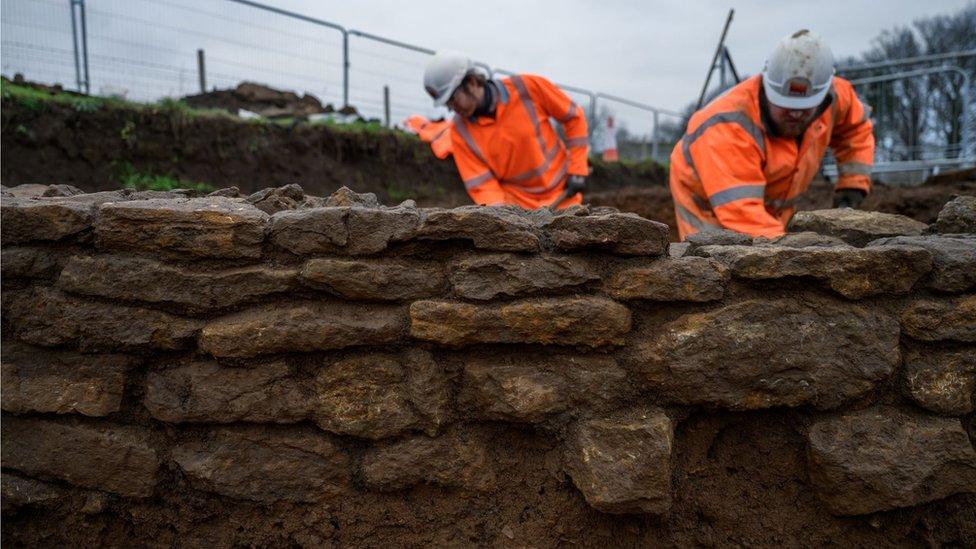
Archaeologists worked at the site near the River Cherwell for 12 months

Find BBC News: East of England on Facebook, external, Instagram, external and Twitter, external. If you have a story suggestion please email eastofenglandnews@bbc.co.uk
Related topics
- Published29 October 2021
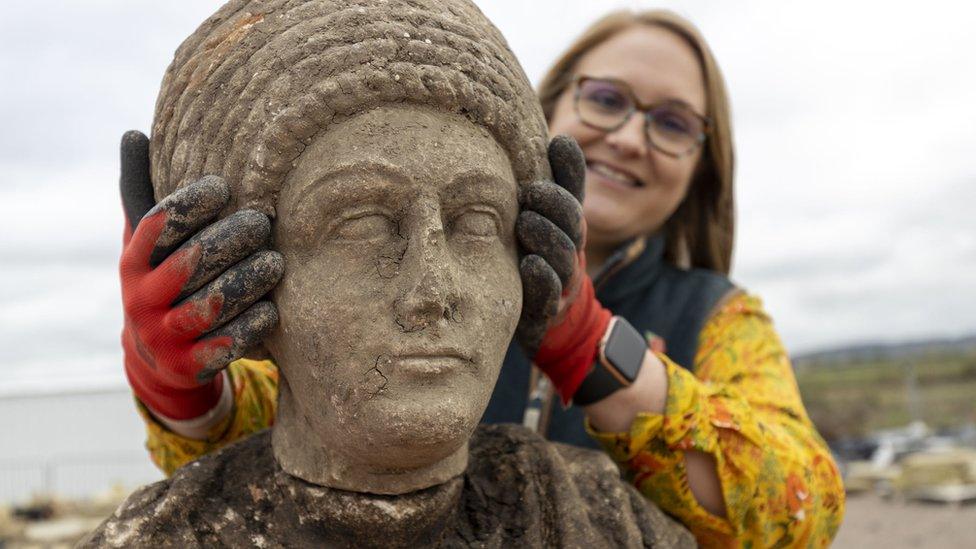
- Published8 September 2021
